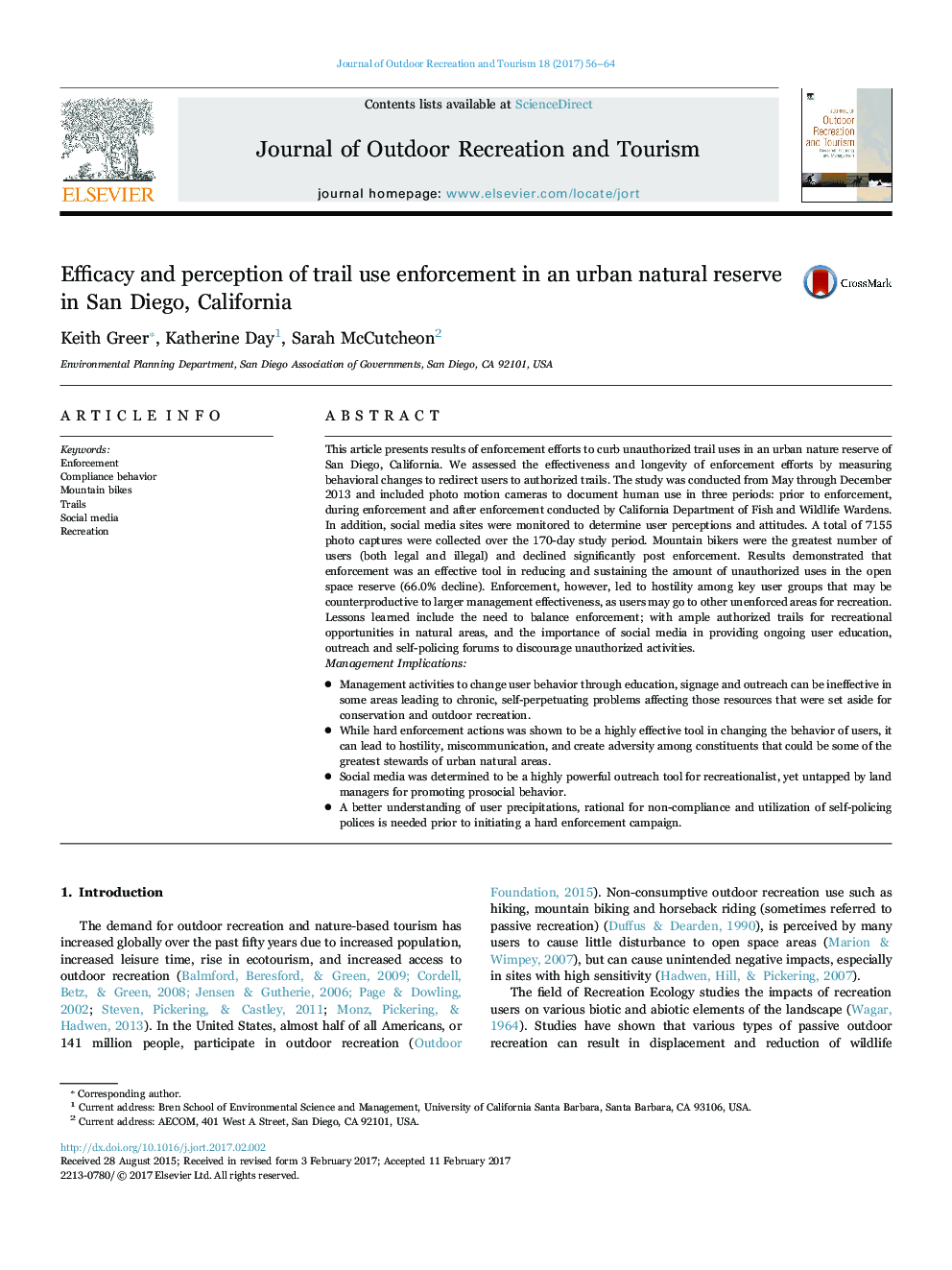| Article ID | Journal | Published Year | Pages | File Type |
|---|---|---|---|---|
| 4759895 | Journal of Outdoor Recreation and Tourism | 2017 | 9 Pages |
Abstract
This article presents results of enforcement efforts to curb unauthorized trail uses in an urban nature reserve of San Diego, California. We assessed the effectiveness and longevity of enforcement efforts by measuring behavioral changes to redirect users to authorized trails. The study was conducted from May through December 2013 and included photo motion cameras to document human use in three periods: prior to enforcement, during enforcement and after enforcement conducted by California Department of Fish and Wildlife Wardens. In addition, social media sites were monitored to determine user perceptions and attitudes. A total of 7155 photo captures were collected over the 170-day study period. Mountain bikers were the greatest number of users (both legal and illegal) and declined significantly post enforcement. Results demonstrated that enforcement was an effective tool in reducing and sustaining the amount of unauthorized uses in the open space reserve (66.0% decline). Enforcement, however, led to hostility among key user groups that may be counterproductive to larger management effectiveness, as users may go to other unenforced areas for recreation. Lessons learned include the need to balance enforcement; with ample authorized trails for recreational opportunities in natural areas, and the importance of social media in providing ongoing user education, outreach and self-policing forums to discourage unauthorized activities.Management Implications
- Management activities to change user behavior through education, signage and outreach can be ineffective in some areas leading to chronic, self-perpetuating problems affecting those resources that were set aside for conservation and outdoor recreation.
- While hard enforcement actions was shown to be a highly effective tool in changing the behavior of users, it can lead to hostility, miscommunication, and create adversity among constituents that could be some of the greatest stewards of urban natural areas.
- Social media was determined to be a highly powerful outreach tool for recreationalist, yet untapped by land managers for promoting prosocial behavior.
- A better understanding of user precipitations, rational for non-compliance and utilization of self-policing polices is needed prior to initiating a hard enforcement campaign.
- Management activities to change user behavior through education, signage and outreach can be ineffective in some areas leading to chronic, self-perpetuating problems affecting those resources that were set aside for conservation and outdoor recreation.
- While hard enforcement actions was shown to be a highly effective tool in changing the behavior of users, it can lead to hostility, miscommunication, and create adversity among constituents that could be some of the greatest stewards of urban natural areas.
- Social media was determined to be a highly powerful outreach tool for recreationalist, yet untapped by land managers for promoting prosocial behavior.
- A better understanding of user precipitations, rational for non-compliance and utilization of self-policing polices is needed prior to initiating a hard enforcement campaign.
Related Topics
Life Sciences
Agricultural and Biological Sciences
Forestry
Authors
Keith Greer, Katherine Day, Sarah McCutcheon,
